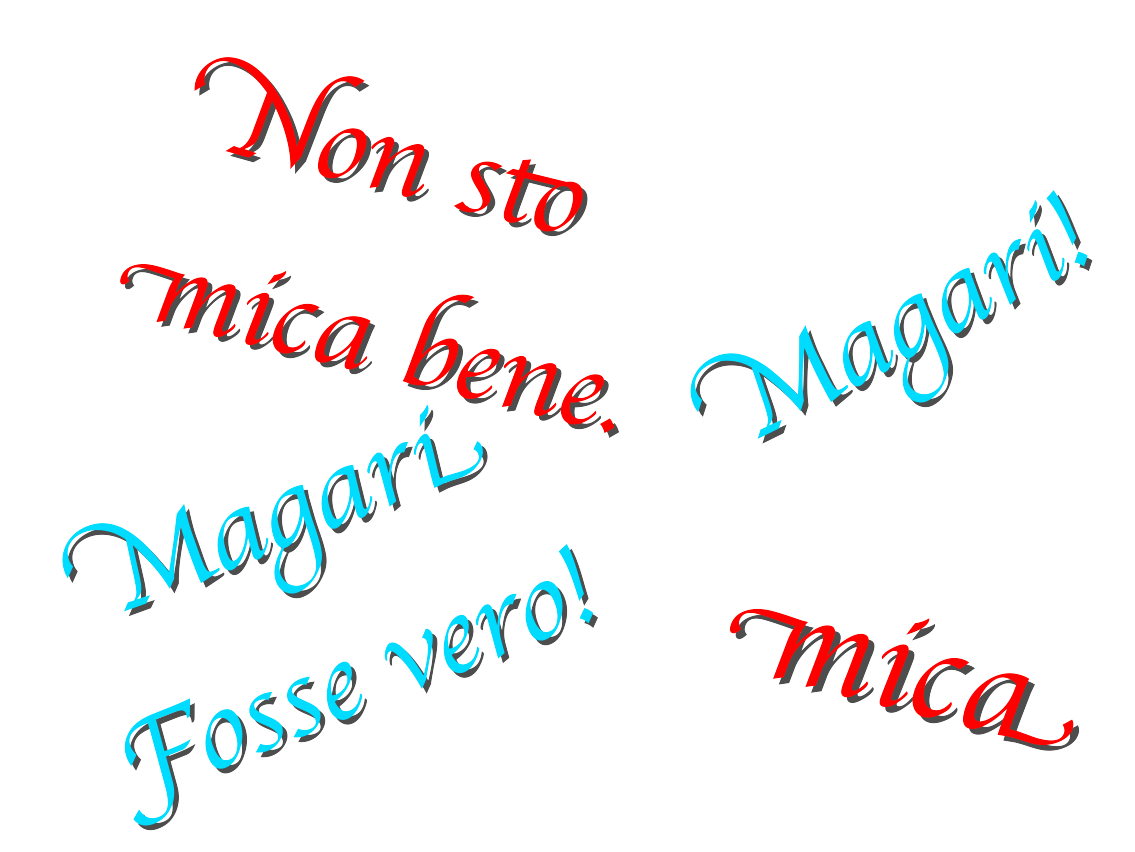Quick Italian: magari and mica
 Curious about the Italian words "magari" and "mica"? Often when I'm in the kitchen preparing lunch, I'll grab my iPad and put on an Italian soap. For me it's a good way to sharpen my Italian listening skills.
Curious about the Italian words "magari" and "mica"? Often when I'm in the kitchen preparing lunch, I'll grab my iPad and put on an Italian soap. For me it's a good way to sharpen my Italian listening skills.
As the conversations fly back and forth, I keep hearing the words "magari" and "mica," both of which are integral features of casual Italian conversation.
To understand their meaning you have to also understand the context in which they are used.
MAGARI
"Magari" can have different functions in a sentence (adverb, conjunction, interjection), and its meaning varies by context.
• magari - maybe, perhaps [adverb]
• Magari c'è un altro motivo. - Perhaps there's another reason.
• magari - if only [conjunction]
• Magari fosse vero! - If only it were true!
• magari - I wish!, Yeah, right! [interjection, a little scarcastic]
• Hai vinto qualcosa? - Did you win anything?
• Magari! - I wish! / Yeah, right!
• Magari! - you bet! [interjection, positive response]
• Ti piacerebbe andare in Italia? - Would you like to go to Italy?
Magari! - You bet! / I certainly would!
MICA
"Mica" is typically used as an adverb, for particular emphasis.
• mica - at all [adverb]
• Mica male questo vino. - This wine isn't bad at all.
• non mica - not at all [adverb]
• Non sto mica bene. - I'm not well at all.
• Non ci credo mica. - I don't believe that for a minute.
Expression
Non sono mica nato/a ieri. - I wasn't born yesterday. (m/f)
Meaning: I know a thing or two ... I didn't just fall off the turnip truck.
How can you start using "magari" and "mica" in your own Italian conversations? Begin by paying attention to these words when you listen to Italian. And when you speak, just slip them in casually. Will that work? You bet! Magari!
Bio: Ulrike Rettig is the co-founder of GamesforLanguage.com. She is a lifelong language learner, growing up in Austria, the Netherlands, and Canada. You can follow her on Facebook, Twitter and Instagram, and leave any comments with contact.
